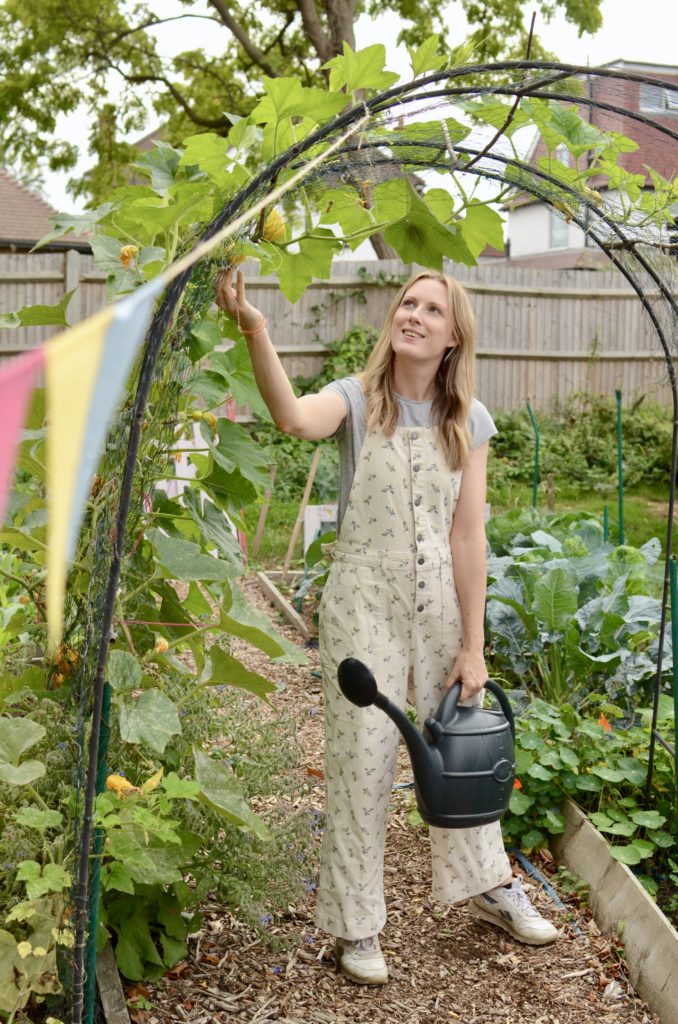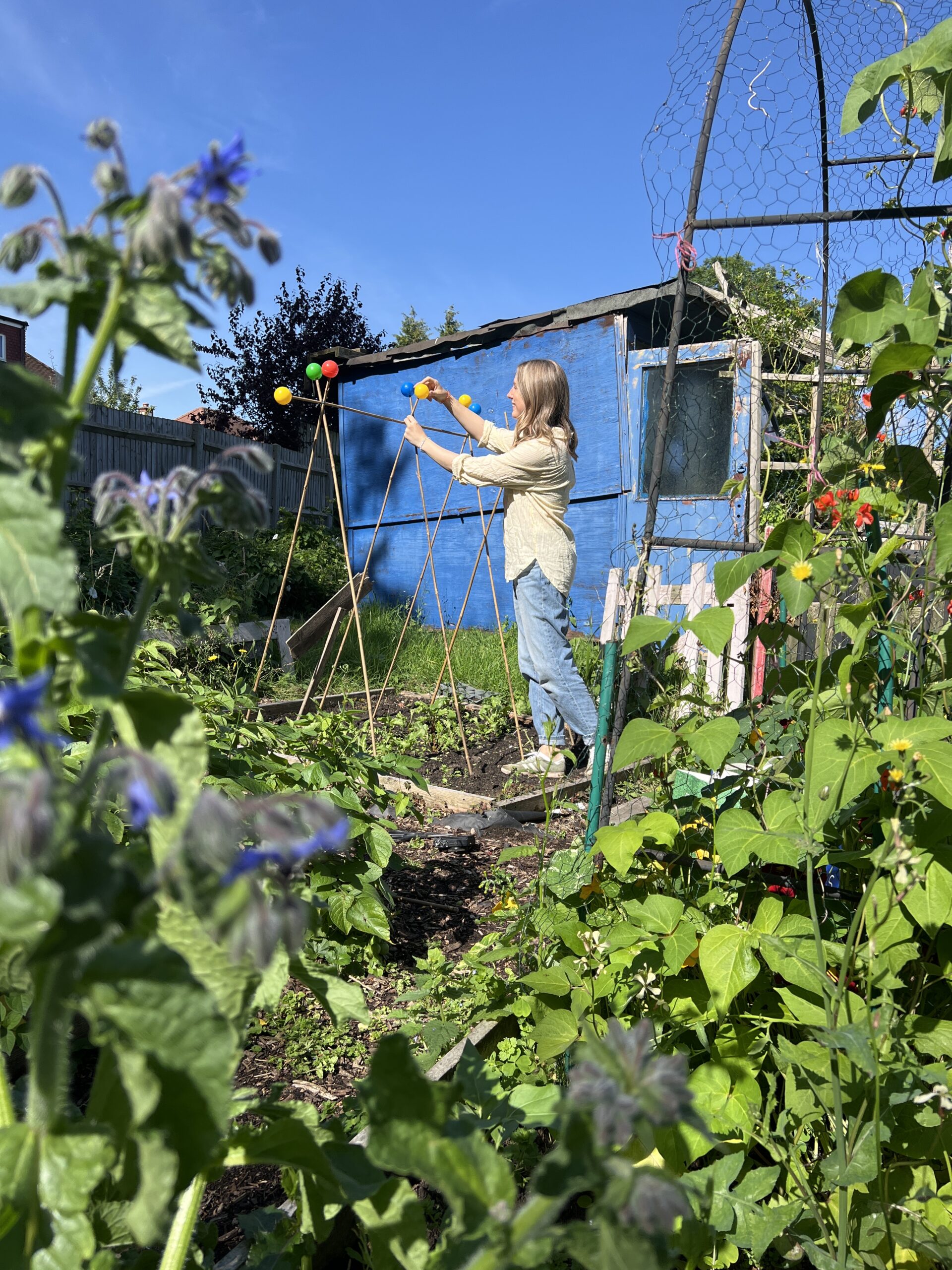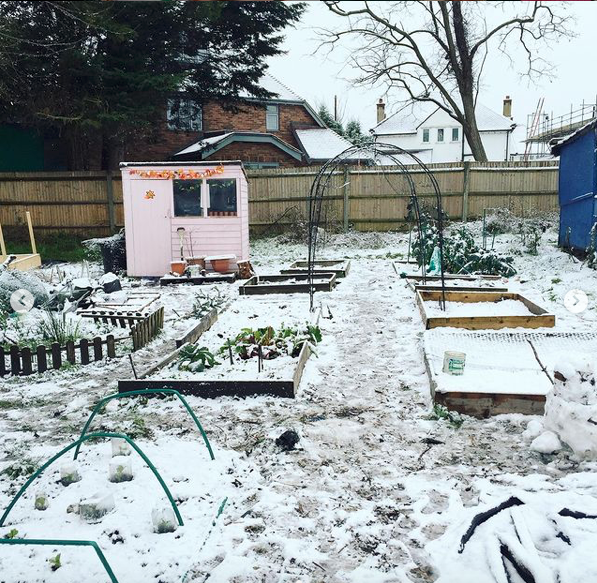
To cover or not to cover, that is the question! So should you cover your growing beds for the winter? Or should you leave them uncovered? What would the benefits be of covering your growing beds vs not covering them?
If you go down to an allotment plot in the winter months you might see lots of growing beds covered over with things like cardboard or even plastic groundsheets. But what is the purpose of these covers and if you didn’t cover your growing beds, would it make a difference?
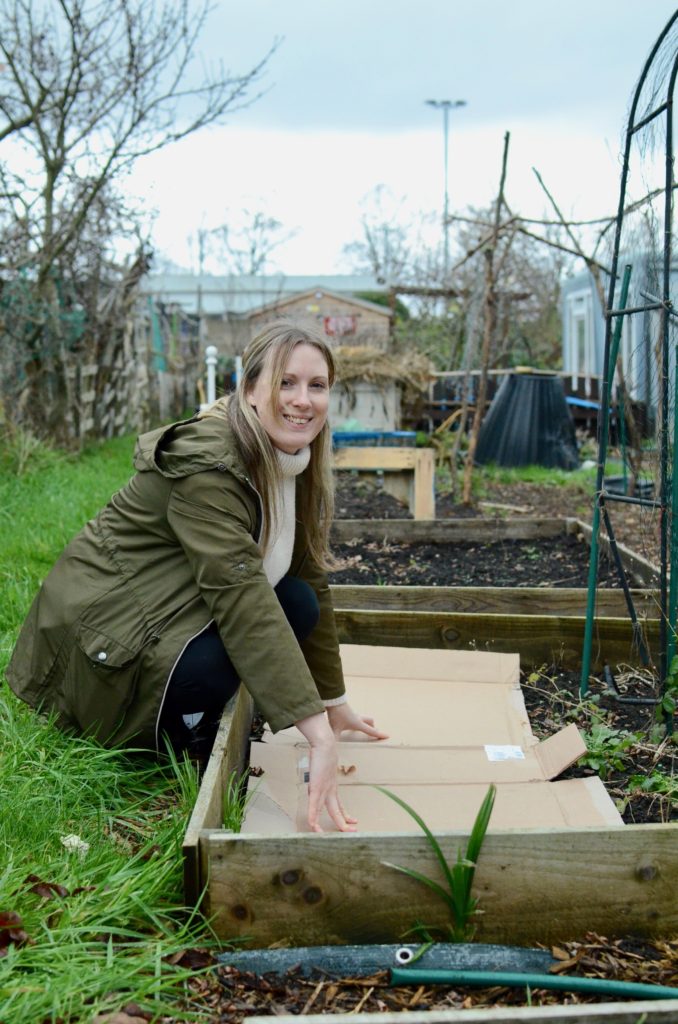
BENEFITS OF COVERING YOUR GROWING BEDS
There are a couple of reasons why us allotment gardeners cover over our growing beds in the winter time. The main one is to stop weeds.
Perennial weeds in particular can continue to grow in the winter time. This can cause even more work for you in the spring when it is time to start growing. So covering beds with a plastic cover or even cardboard can be a good way of keeping those weeds down.
Covering with a plastic sheet or cardboard can also help to reduce soil erosion in your growing beds as well as holding in more nutrients. A lot of people also cover beds in the late winter as a way of warming up the soil quicker so they can start their planting a little earlier.
DOWNSIDES OF COVERING YOUR GROWING BEDS
Of course, not everyone agrees that covering your growing beds is a good idea. One of the biggest downsides to covering growing beds over is the amount of pests it can attract.
Slugs and snails are always looking for a dark, sheltered place to hide out in and lay their eggs, resulting in even more of them taking over your garden in the spring time. Some people have even reported mice taking shelter under their covers, which is not ideal!
Covering over with a sheet of plastic can actually help weeds too. The seeds can sit happily under the plastic and then germinate earlier than they usually would, before you get a chance to even take the covering off!
A lot of people believe that allowing soil to be exposed to the elements is better for the garden. Birds and other wildlife can still get to the valuable food sources in the soil and you can cover them over with fleece a month before spring comes to warm up the soil earlier.
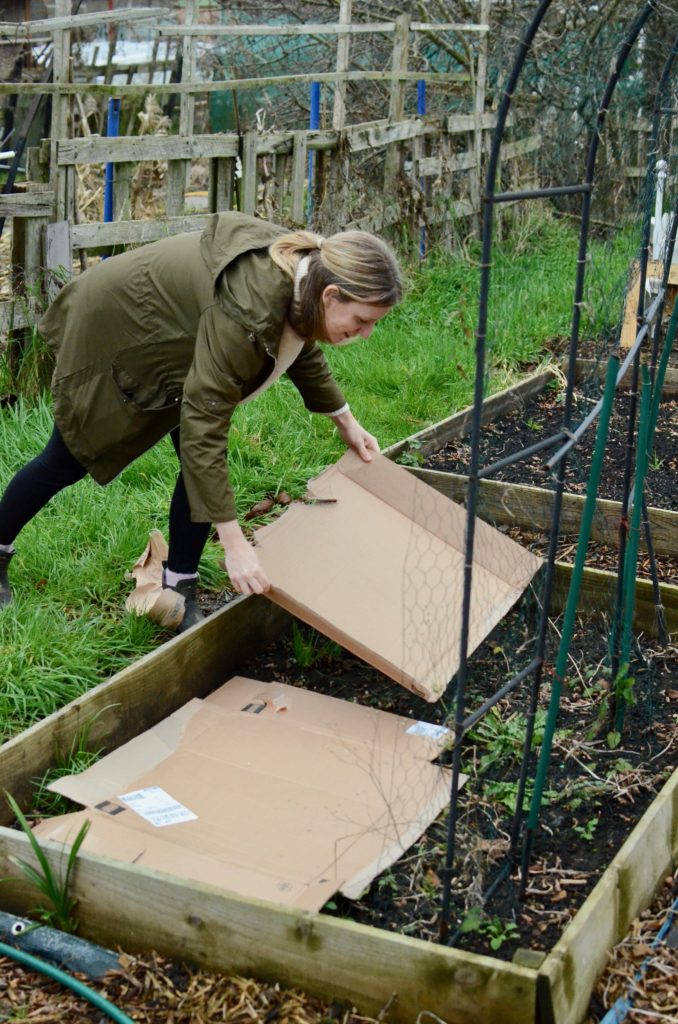
WHAT IS THE BEST THING TO COVER GROWING BEDS WITH?
There are lots of options when it comes to what you should cover empty growing beds with. Cardboard and plastic covers are not always the best options, but leaving them totally exposed to the elements with no cover at all can lead to a loss of nutrients, particularly nitrogen.
Using natural materials such as leaves, compost and even manure can be a great option. Mulch adds goodness to the soil as well as adding a much needed insulating layer. It can help to retain moisture and nutrients over the colder months.
It’s a good idea to mulch over growing beds with natural material in the Autumn time, while the soil isn’t frozen over. This should help to stop weeds from continuing to germinate over the winter months.
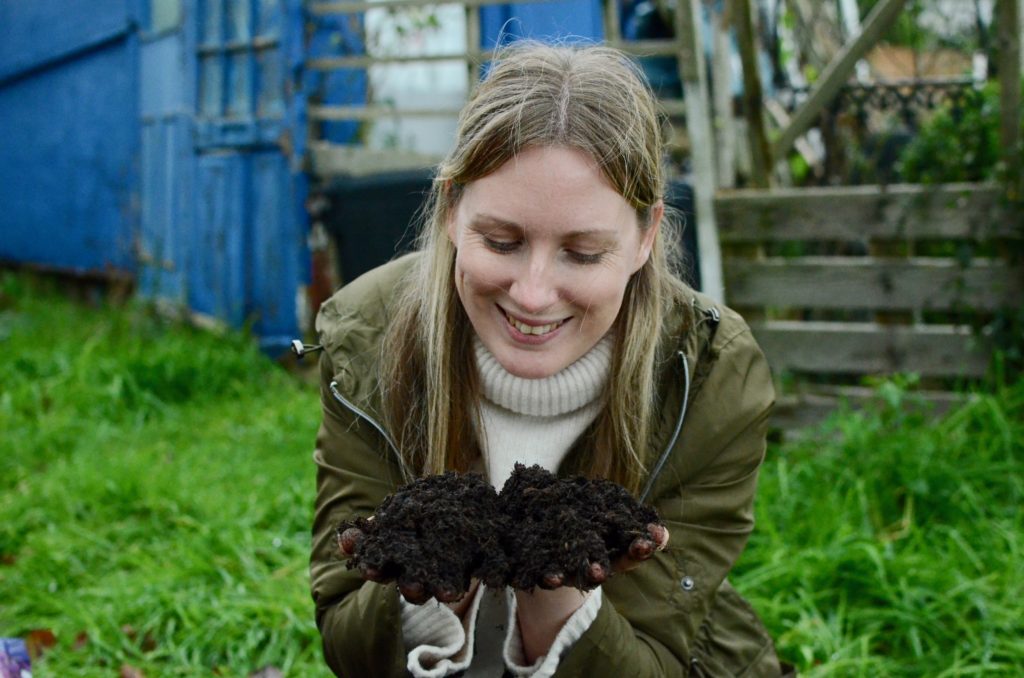
TO COVER OR NOT TO COVER?
Whether you cover your growing beds over the winter time or not is really up to you. There are benefits and downsides to both options, as there is in most gardening jobs!
The fact is, an empty growing bed is never a good thing. Leaving a growing bed totally exposed throughout the winter months will lead to a loss of nutrients, in particular, Nitrogen. It can also cause the soil to become boggy with all the rain as well as lead to soil erosion.
However, covering over with plastic sheets or cardboard isn’t always great either. Pests can gather underneath the covering resulting in an explosion of slugs in the spring time. Seeds from weeds can also become trapped underneath and germinate earlier than expected as the sheeting will warm the soil up quicker than had it not been covered.
Covering or mulching with a thick layer of natural material may very well be your best option. Not only does this help to insulate the soil, it can also help to improve nutrients, improve soil structure and hold back weeds.
Whatever you do is up to you and it’s best to try different methods until you find one that works for you!


